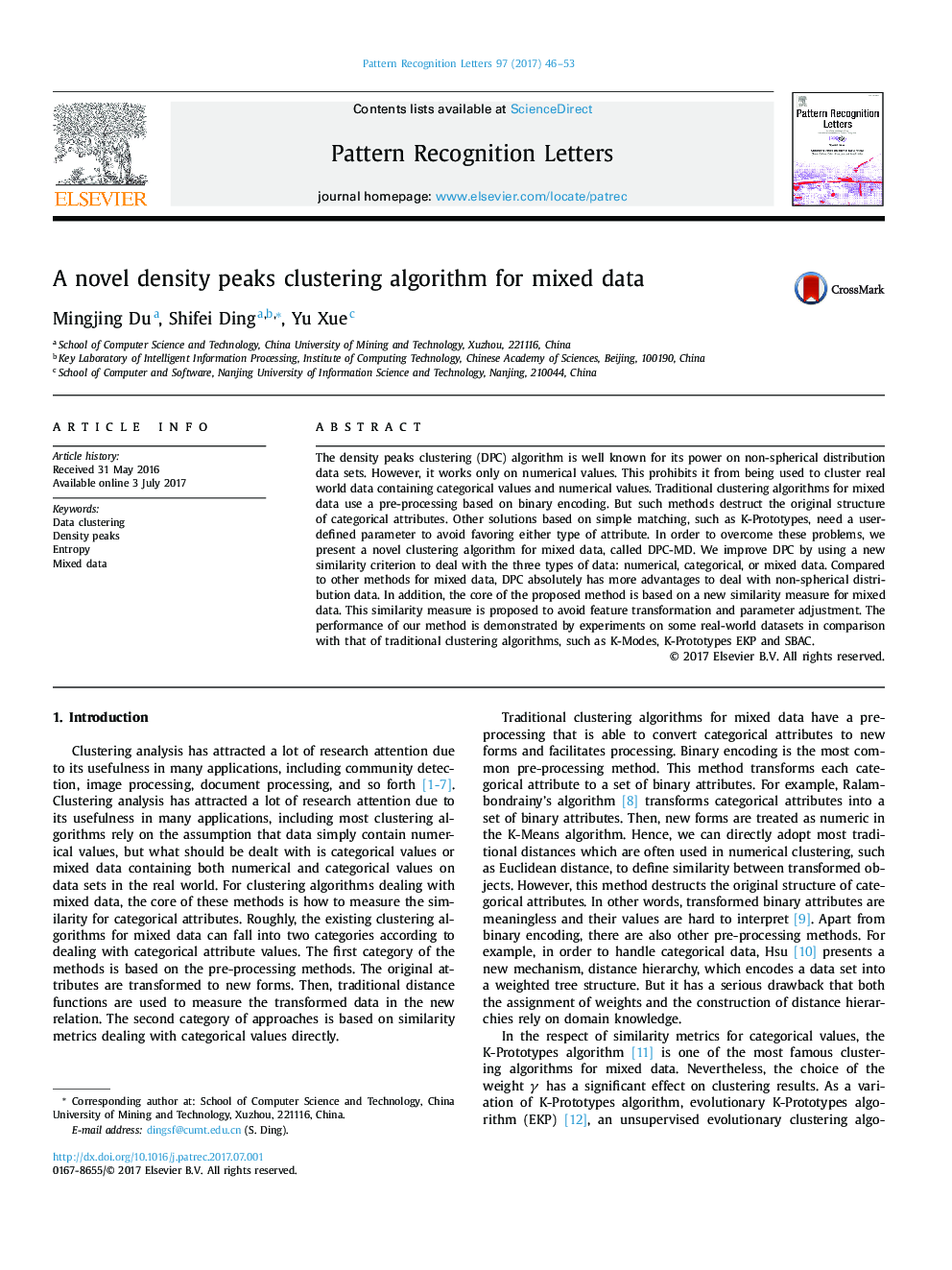| Article ID | Journal | Published Year | Pages | File Type |
|---|---|---|---|---|
| 4970036 | Pattern Recognition Letters | 2017 | 8 Pages |
Abstract
The density peaks clustering (DPC) algorithm is well known for its power on non-spherical distribution data sets. However, it works only on numerical values. This prohibits it from being used to cluster real world data containing categorical values and numerical values. Traditional clustering algorithms for mixed data use a pre-processing based on binary encoding. But such methods destruct the original structure of categorical attributes. Other solutions based on simple matching, such as K-Prototypes, need a user-defined parameter to avoid favoring either type of attribute. In order to overcome these problems, we present a novel clustering algorithm for mixed data, called DPC-MD. We improve DPC by using a new similarity criterion to deal with the three types of data: numerical, categorical, or mixed data. Compared to other methods for mixed data, DPC absolutely has more advantages to deal with non-spherical distribution data. In addition, the core of the proposed method is based on a new similarity measure for mixed data. This similarity measure is proposed to avoid feature transformation and parameter adjustment. The performance of our method is demonstrated by experiments on some real-world datasets in comparison with that of traditional clustering algorithms, such as K-Modes, K-Prototypes EKP and SBAC.
Related Topics
Physical Sciences and Engineering
Computer Science
Computer Vision and Pattern Recognition
Authors
Du Mingjing, Ding Shifei, Xue Yu,
